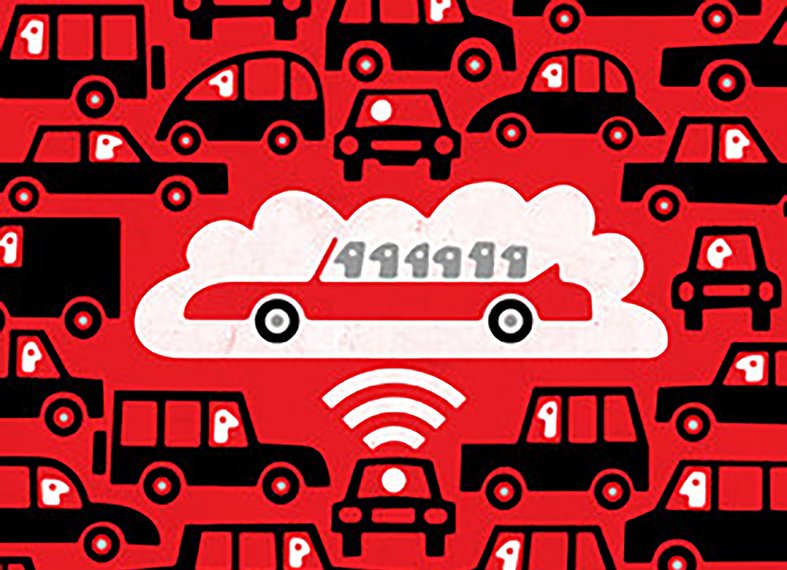
The business models of the past are fast transforming. People are using websites that have developed “sharing” models to gain access to products and services, and this is having a significant impact on the business models of the past that we are all used to. From booking a hotel or finding a taxi, or even a person to do some chores for you, companies like Airbnb, Uber and TaskRabbit are transforming everything, and in the process creating a so-called “sharing economy”.
The “sharing economy” is something of a lie in some cases. Writing for NEF in 2015, Duncan McCann points out that:
“If I offered to share my cake with you and then I charged you money for a slice, would I have really shared it with you at all? No: It would be selling.”
Airbnb does not really allow people to share their houses. Rather, it allows people to make money from renting rooms out, which they might otherwise find hard to do. This is achieved through technology platforms that allow people looking for services to link up with people that have services to offer. As argued, this is not “sharing” and there needs to be a much more effective term to explain it, because sharing is the wrong term.
From all corners of the planet people are voicing out their concerns about the real intentions of projects like Airbnb or Uber and how it is affecting jobs and workers rights. That is the case of the book “Raw Deal”, written by Steven Hill, that focuses particularly in the American case.
Real Sharing Economy
It is explained that the sharing economy is genuine where people do offer skills, information and knowledge or other items to each other in a manner that generates increased value for all parties. There are genuine examples of this out there already. These include tool lending libraries and websites such as Couchsurfing. Such platforms provide individuals the chance to connect and exchange with one another without involving payment at all. Yet such services do not comprise very much of the so-called “sharing economy”. Instead they are part of the “online exchange market economy”.
The argument is presented that there is such a thing as a “bad sharing economy” which includes not just Uber and Airbnb but also Facebook and YouTube. What they do is take value offered by their users and make revenues from it. In all cases, these organisations would be valueless if people did not share videos, rent rooms or cars or change status updates. All of these companies work to get value from users, and they do not have an interest in sharing per se. It is even argued that Airbnb and Uber are focused on building monopolies. Some have even touted such organisations as “Deathstar platforms” due to the destruction they bring, rather than really creating value.
For individuals they offer value because people can get stuff cheaper or in some cases, for free, and it puts to use stuff that might otherwise not have been used. However, they create problems in and of themselves.
Some example problems are cited to be the San Francisco property market, as people want to buy homes, but struggle to get access to them due to people buying them for Airbnb use. There is also an argument that Uber has led to the situation where 10,000 extra cars are on the roads. Another huge challenge is the fact that while people can make money from offering these services when the going is good, they are in fact not actually employed and miss out on benefits that come with employment.
They also face risks if anything changes with the platform they work through. All of these are challenges that need to be surmounted. It is quite unclear what the benefits will be, and it is shown that Uber is avoiding any contractual regulations. Nonetheless they do provide some form of work for some people, so it is not all bad.
People using the new platforms find them to be “good” because they get better deals than they might have had in the past. Yet they clearly do present problems that are not being properly addressed. Uber has been banned in some cities for the problems it creates. There are notions in other places that cooperative platforms are being developed.
In these cases, there is much more genuine sharing – of information, income and power. It is argued that true cooperation should be encouraged through tax advantages or legal advice, and this could be helpful in cutting back on monopolies generated by corporates like Airbnb and Uber. This could lead to true sharing, rather than “bad” sharing.

Paula Newton is a business writer, editor and management consultant with extensive experience writing and consulting for both start-ups and long established companies. She has ten years management and leadership experience gained at BSkyB in London and Viva Travel Guides in Quito, Ecuador, giving her a depth of insight into innovation in international business. With an MBA from the University of Hull and many years of experience running her own business consultancy, Paula’s background allows her to connect with a diverse range of clients, including cutting edge technology and web-based start-ups but also multinationals in need of assistance. Paula has played a defining role in shaping organizational strategy for a wide range of different organizations, including for-profit, NGOs and charities. Paula has also served on the Board of Directors for the South American Explorers Club in Quito, Ecuador.






























